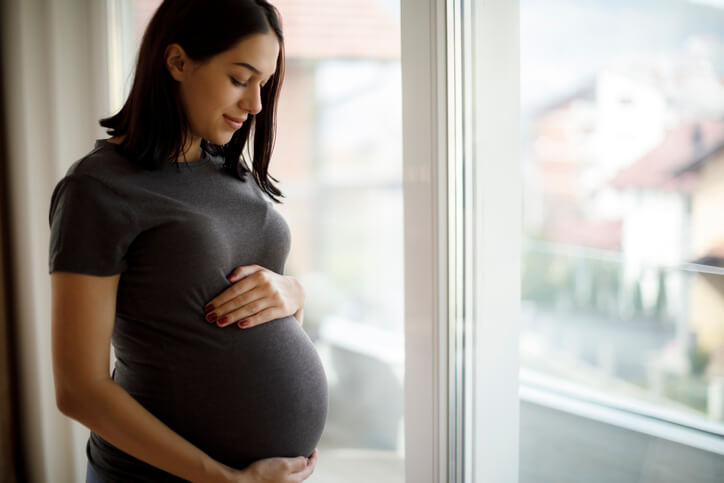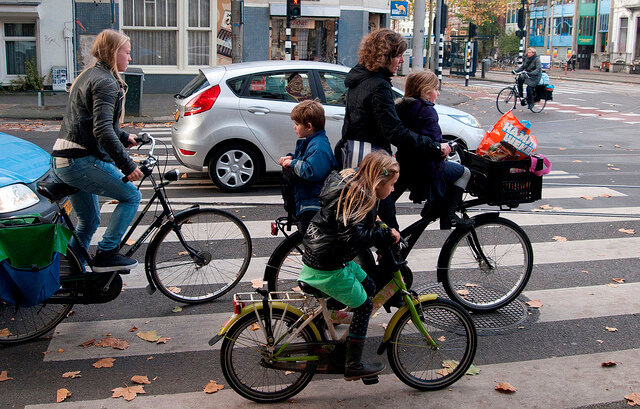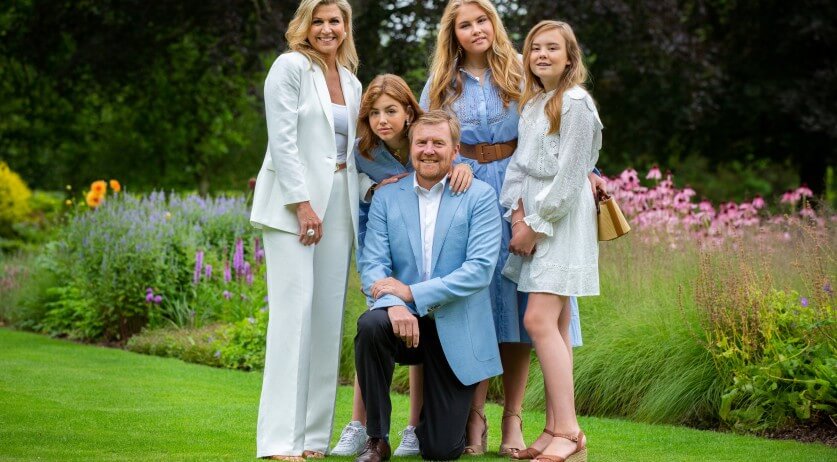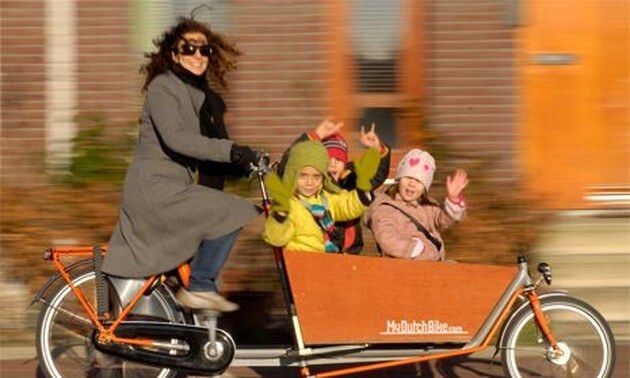Dutch kids are amazing: they cycle around town, hang onto their parents’ bikes, and eat hagelslag like there’s no tomorrow. It’s no surprise that they’re among the happiest kids in the world – but why is that? And what distinguishes Dutch children’s upbringing from that of American children?
I frequently imagine what it must have been like to grow up in the Netherlands rather than Atlanta, Georgia – a southern city famed for sunlight, Coca-Cola, and being the home of CNN and Delta Air Lines.
Growing up in a little, flat kingdom where chocolate sprinkles on toast are considered an acceptable breakfast and pancakes are considered a suitable dinner. Where a child rides their bicycle from their house to school every day, past playgrounds and ice cream stores, not to mention endless cows, lambs, and horses.
Don’t get me wrong: I had a wonderful childhood, but being in a different nation made me aware of some variations in how other countries raise their children.
Dutch youngsters are exceptionally happy in this quirky tiny country, ranking as the happiest children in rich industrialised nations in multiple child well-being assessments.
On the other side, American children rank among the lowest in almost every parameter measured, owing mostly to inequality and an unusually high child poverty rate (with nearly a quarter of children in the U.S. growing up under the federal poverty limit).
When I came to the Netherlands for my master’s degree in Social Policies and Social Interventions, I had no idea how much minor cultural variations influenced national policies and how different my childhood in the Netherlands was from my American background.
These are some of the most significant observations I’ve made after living in the Netherlands for a few years:
Dutch kids know about “the birds and the bees”

I grew up in a conservative state where it is still illegal to purchase alcohol on Sundays in most locations.
We thought sex education meant instilling fear of incurable STDs, dismissing birth control as untrustworthy, and having a man hand out white roses and pledge cards to make us agree to “reserve ourselves for marriage.”
On the other hand, the Dutch are recognized for their tolerance of sexuality, and they appear to be fairly proud of it. Many people are familiar with Amsterdam’s Red Light District and the country’s devotion to sexual equality.
The Dutch take an open, practical, and liberal approach. Sexuality, they believe, is a normal aspect of life.
They are pragmatic in their approach, believing that people will have sex anyhow, so why not create a safe, well-informed environment? Liberalism also guarantees people the right to do whatever they want in their bedrooms.
Unlike many American children, Dutch children are provided with subsidized comprehensive sex education that teaches them about love, sex, and relationships.
The Dutch approach to sex education puts America to shame. Because the Dutch are upfront about their sexuality and contraceptives, the little country has some of the lowest rates of teen pregnancy, abortion, and STDs in the world.
Having a baby in Holland

A quarter of Dutch women give birth at home with the assistance of a midwife. In addition to assisting with birth, Dutch midwives offer prenatal care and guidance to expectant mothers.
I was surprised to learn that home births were still very frequent in the Netherlands. However, the majority of individuals live within 15 minutes of a hospital, so if the home birth becomes complicated, the hospital is only a few steps away.
Women are entitled to maternity care after giving birth, whether at home or in a hospital (something which is apparently a luxury in the U.S.) A licensed maternity nurse gives kraamzorg (postnatal care) to women who give birth under the Dutch healthcare system, in what may be a wonderful hybrid between the Fairy Godmother and Mary Poppins.
The maternity nurse assists new moms in caring for their babies by providing guidance, health checks, and even assisting with home responsibilities such as laundry and meal preparation for other children. What a great idea!
Meanwhile, in the United States, most women give birth in hospitals with the assistance of medical doctors. While doctors may help with some prenatal care and the birth itself, post-natal care is not always available.
Furthermore, the United States is one of the few countries in the world that does not mandate businesses to provide required paid maternity leave.
Playing rather than doing homework

Another distinction between Dutch and American youngsters is their attitude toward “playtime.” Play is promoted and seen as an important aspect of childhood development in the Netherlands.
This concept is visible in the abundance of children’s playgrounds, petting zoos, and even kid zones in stores! Not to mention, it’s common to see Dutch youngsters riding their bikes, scooters, tricycles, rollerblades, etc. outside whenever possible.
Despite the fact that compulsory schooling begins at the age of five, more than 95 percent of Dutch four-year-olds attend early childhood education, and 63 percent of two-and-a-half to three-year-old children attend some type of playgroup.
Children learn how to react in crises, confrontations, and social circumstances through play. Dutch children are encouraged to spend time cheerfully playing and socializing, from the prevalence of children’s playgroups to little amounts of homework and specific children’s play zones.
The relaxed Dutch parenting style

The Dutch parenting mantras of rust (rest), regelmaat (regularity), and reinheid (cleanliness) demonstrate a substantial difference in Dutch and American family life after hours of play.
Dutch parents provide a stable environment for their children by sticking to the three R’s. To avoid hazardous germs and infections, children require adequate sleep, routine, and cleanliness.
Rather than expecting that a child will sleep when they are weary or that they will be unable to sleep through the night, the Dutch just stick to a regular bedtime, generating rhythm and comfort.
This is in stark contrast to American cultural standards, which promote regular stimulation and arousal in youngsters in order to enhance cognitive development and accomplishment.
Consider “helicopter parents,” who overschedule their children by requiring them to participate in numerous extracurricular activities while simultaneously putting pressure on them to achieve excellent grades.
In contrast, Dutch parents are significantly more concerned with their children’s overall pleasure and well-being than with their children’s academic performance.
A genuine welfare state for Dutch children and families

For me, studying social issues in the Netherlands emphasized the Dutch dedication to families. In America, this is usually left to the private sector.
The Dutch government attempts to balance work-life and family responsibilities. Paid parental and paternal leave to care for a sick child and child benefit packages appear to exist in a parallel universe to the United States, which mandates employers to do none of the above.
The Netherlands is so concerned with child policies that they support the Child-Friendly Cities Network, in which cities compete with local projects to promote children’s rights and interests.
One of their objectives is to set aside 3% of residential land for children’s playgrounds, sandboxes, and other amenities.
The government also often works with the Dutch National Youth Council, which comprises over 30 children’s organizations that advocate for children and encourage youth participation in local policy and planning.

If you don’t believe me about how different things are in the United States, wait till you read this: aside from Somalia, the United States is the only other country that hasn’t joined the UN Convention on the Rights of the Child.
America is well-known for being an outlier in terms of social and family regulations, with many people viewing family rules as an unconstitutional governmental violation of family privacy.
Despite all of the good consequences of parental leave policies, the discussion over paid maternal leave in the United States (as it occurs in other 163 nations) may result in the full collapse of the United States Congress.
I’ll never know if I would have had a happier upbringing in the Netherlands. I’d definitely speak more quietly in restaurants, be unafraid of provocative art throughout town, and have a rudimentary understanding of water technology from building sand dykes at the beach.
Not only that, but I would surely be a better rider, speak more than one language, and accept French fries as a whole supper choice. But are they happier?